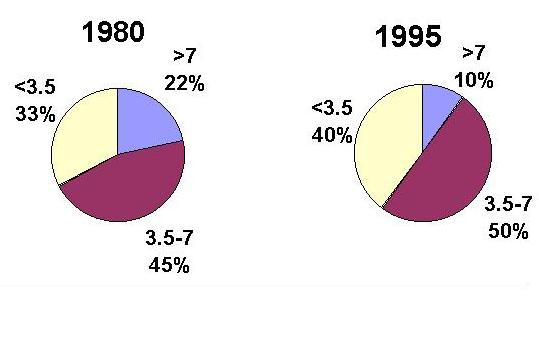| Sustainable Food Guide | Environmental Practice at Work © 2005  |
Issues
Issues
| Soil Issues....
"The history of every Nation is eventually written in the way in which it cares for its soil" Roosevelt signing Soil Conservation and Domestic Allotment Act 1936. Soil refers to the physical structure, while land refers to its social context. See Land Issues. Soil degradation Let's not treat the soil like dirt. "The world's cropland is losing topsoil through erosion faster than new soil is forming, thereby reducing the land's inherent productivity," warns Lester Brown, founder of the Earth Policy Institute, in his book Plan B. More The world’s cropland is losing topsoil through erosion faster than new soil is forming, thereby reducing the land’s inherent productivity,” “Where losses are heavy, productive land turns into wasteland.” Farmland across the world is affected, stretching from the wheat-covered prairies of the US to chemically contaminated tracts of eastern Europe and China. But the problem is most acute in Africa, where farmers tilling some of the world’s oldest soils are among the least able to take action to protect their most important resource. Strutt Report 1970 in UK concluded: "Some soils are now suffering from dangerously low organic matter levels and could not be expected to sustain the farming systems which have been imposed upon them.". Soil Erosion in UK by Reading University, Role of Organic Matter in Soil (inc Russell quote). We want the carbon in the soil (rather than air) for increased biomass and biodiversity. Between 1945 and 1986, the amount of carbon released from UK land tripled. Since 1980, UK soils lost 12-15% carbon of the total carbon in the soil, due mainly to loss from arable lands. This is about 4Million tonnes/yr lost in Greenhouse Gas Emissions. There has been a reduction in GHG emissions from UK agriculture since 1990 of about 14%. 13 mtonnes of C02 estimated to be lost from UK soil each year "Carbon losses from all soils across England and Wales 1978-2003”, P.Bellamy et al, Nature, Vol 437, 8.9.2005 (complete pdf). The Countryside Survey of Great Britain seems to contradict these carbon losses claining that there has been no change in last 30 years, so an independent inquiry is in place (see Observer article March 2010). The Supporting Evidence Paper for the Soil Strategy Paper (pdf) says "there is significant uncertainty surrounding the Bellamy et al findings, in particular on the causes", quoting the work of Smith et al who consider that only 10-20% of the loss could be put down to global warming. There are further concerns about validity of the extent of the survey. However the overall trend seems ominous: Loss of carbon from England & Wales Soil: In 15 years, soils with the highest concentrations of carbon - greater than 7%, dropped from 22% of soil to 10% of the total.
Source: SSLRC, National Soil Inventory. MAFF (now DEFRA) project quoted in Application of National Sustainable Agriculture Indicators "A tiny loss of 0.1% of carbon emitted into the atmosphere from European soils is the equivalent to the carbon emission of 100 million extra cars on our roads – about half of the existing car fleet. Conversely, at today's prices, an increase in soil carbon of the same small amount would be worth some €200 million" EU Commission dishes the dirt. The most popular reason for the decline is usually given as more ploughing. Certainly the change from grassland to cultivation does make for a big loss of organic matter. But we do not know of studies that have quantified this according to whether there has been an increase in ploughing over last 20 or so years. Consideration should also go into the increased usage of herbicides / weedkillers as they will reduce the contribution of vegetable debris back to the soil. (More in "My story of soil animals" to come) Soil Science | |||||
| Copyright EP@W Ltd 2008 |



